Creating value for our customers, suppliers and staff, and ultimately for the public who benefits from scientific discovery.
Faster and Easier Flow Cytometry Sample Prep, Synthetic mRNA for Research and Clinical Labs, Next Generation Cell Recovery for Immuno-Oncology etc.
Anti-Müllerian Hormone (AMH) Quality Control, RIQAS Anti-SARS-CoV-2 Serology EQA Programme, Molecular Controls for Infectious Disease etc.
Tapestri Solution for Tumor Profiling in Single Cell, Ultimate Exonic Coverage, Liquid Biopsy Panels etc.
Direct PCR of Crude Samples without Template Purification, highQu PCR & qPCR Reagents Performance Excellence etc.
Electrospray ionization emitters, RAS proteins for oncology research, MagReSyn NTA beads etc.
Genie Purist: Dedicated for Ultrapure (Type I) Water, Operational Reliability and Ease-of-Use etc.

Based on the core technology Ghost Cytometry which enables supervised or unsupervised machine learning-based sorting, ThinkCyte offers the platform VisionSort.
The system provides cellular fingerprints with morphometric readouts in high resolution, on top of standard fluorescence-based sorting.
VisionSort is the perfect addition to conventional cell sorters, by providing unbiased, label-free cell characterization and sorting, supported by an embedded AI algorithm.
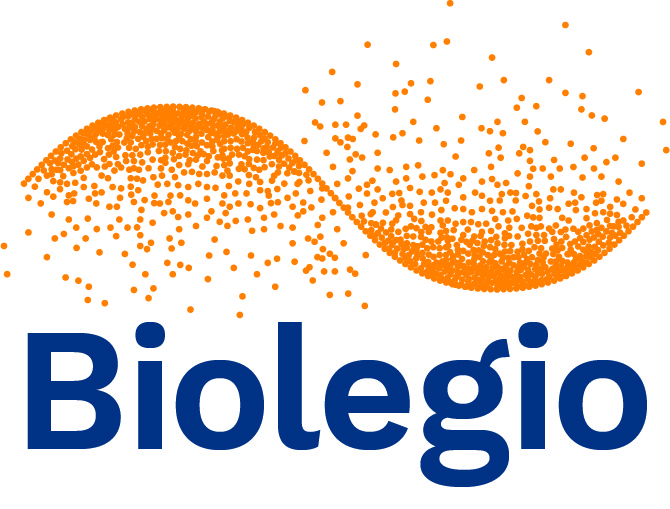
Biolegio offers a range of products, spanning from highly modified and specialised oligos, to standard DNA oligo synthesis.
Applications covered are sequencing, NGS, PCR, Realtime-PCR, SNP detection, genotyping, gene expression and mutation detection.
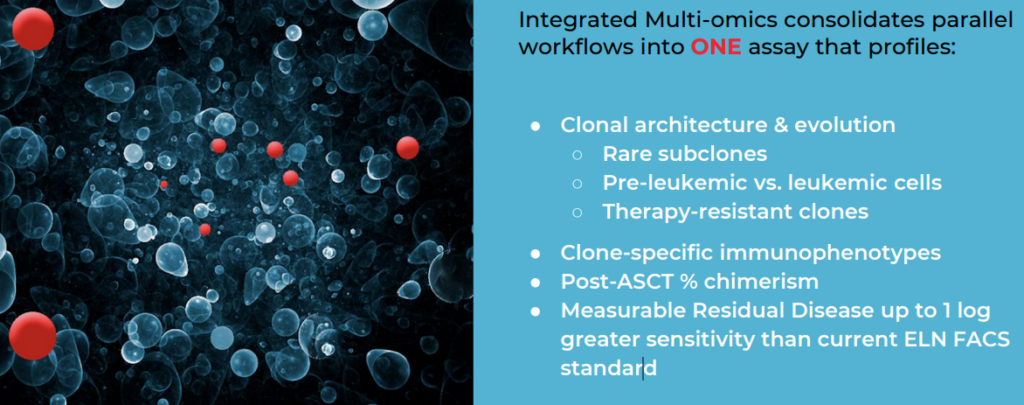
As the only solution to integrate genotypic and immunophenotypic assessment, the scMRD AML Multiomics Assay targets 40 genes for single-cell DNA sequencing based on current international AML MRD guidelines, such as European LeukemiaNet, and 17-plex antibody-oligonucleotide conjugate (AOC) panel curated for key biomarkers associated with AML MRD.
Through a seamlessly integrated workflow, the assay allows clinician-researchers to:
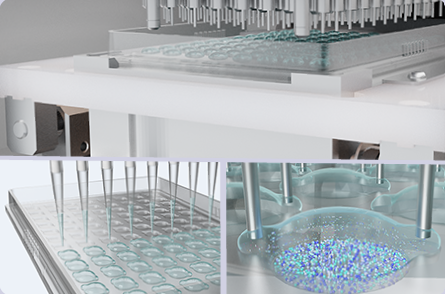
Laminar Wash technology makes it easy for applications that require a high degree of automation such as screening final product for cell therapeutics. Laminar Wash systems can replace centrifuge integrations and only require one robotic movement instead of over 20 movements. Integration using Laminar Wash technology can:
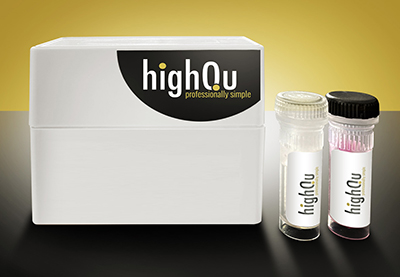
Superior sensitivity polymerase generating less side products and low copy detection in complex
templates with size up to 6 kb. Highly specific polymerase thanks to efficient blocking at room
temperature. The ALLin™ Buffer includes dNTPs, Magnesium, enhancers, and stabilizers.
10% 4th Quarter Discount
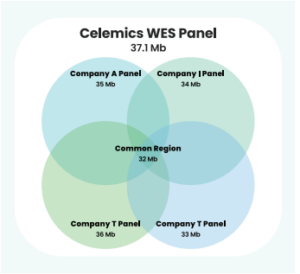
Celemics Whole Exome Sequencing Panel is the most comprehensive WES panel in the market, covering all target regions of major WES panels in the market.
The panel does not compromise uniformity and performs well against hard-to-capture regions such as GC-rich regions.
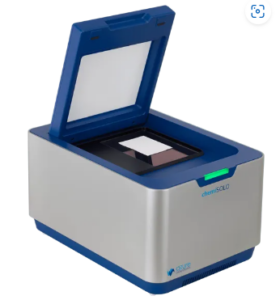
The chemiSOLO detects low-expressing proteins with femtogram sensitivity and captures marker images at the push of a button.
A unique web browser interface allows the chemiSOLO to be controlled by phone, tablet, or PC, without the need to install any additional software.
In addition to Western blots, the chemiSOLO captures pictures of colorimetric blots or visible stained protein gels, like Coomassie blue or silver stain.
The chemiSOLO’s wide dynamic range can be further enhanced by using EDR, our Extended Dynamic Range function. This feature allows for linear, quantitative data, while avoiding saturation.
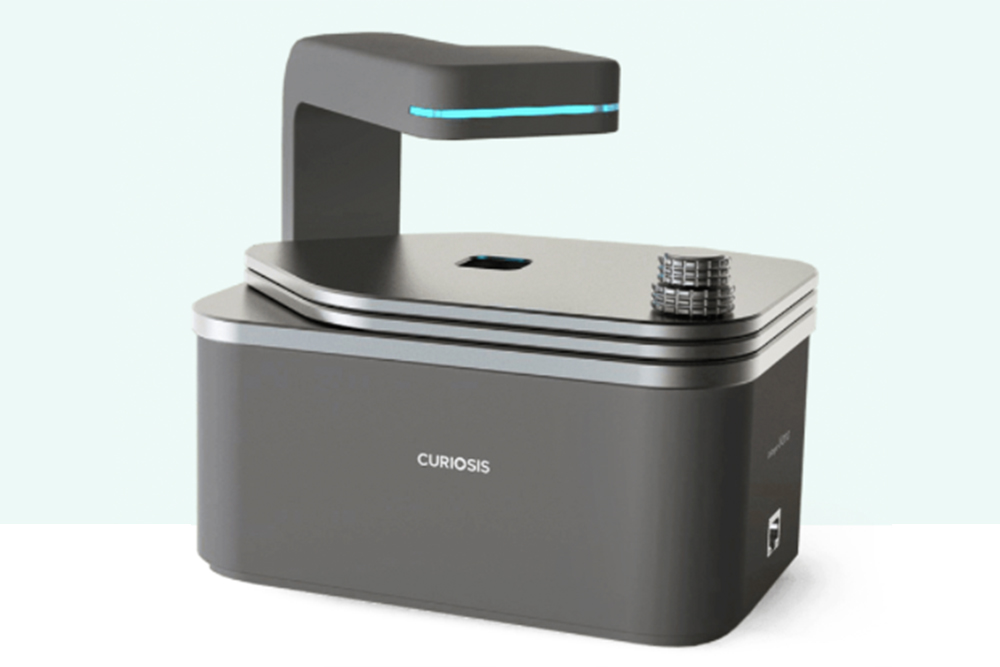
The super compact and intuitive live cell imaging system, Celloger Nano- got everything you need to perform your sophisticate laboratory works. Equipped with exceptional flourescence and auto focusing technology, precise stage controller, and user-friendly software, accelerates your cell-based research works.
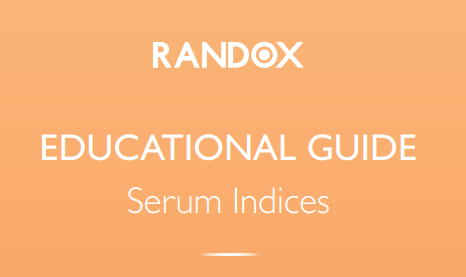
The Randox Acusera Serum Indices control is designed to be used to monitor an IVD instrument’s response in the detection of haemolyzed, icteric and lipemic (HIL) samples. This control can be utilised in laboratory interference testing to assist in improving error detection of pre-analytical errors affecting clinical chemistry testing.
This control provides a full range of clinically relevant testing levels, including a negative (-) and three positives (+, ++ & +++)
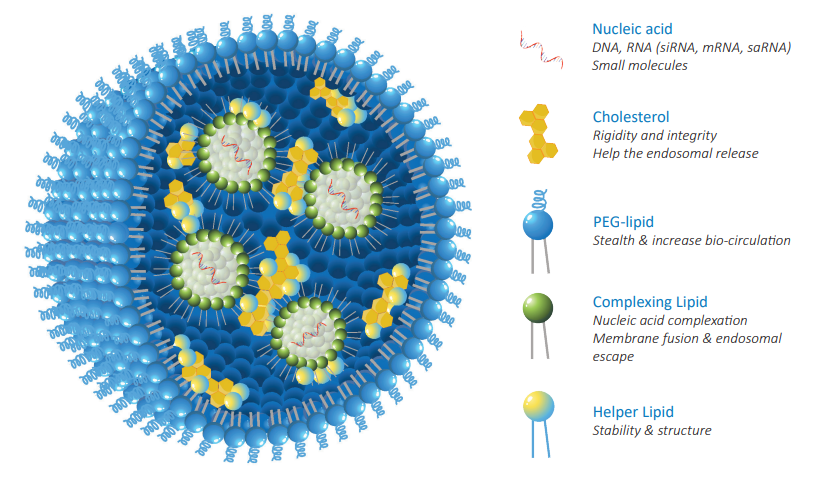
OZ Biosciences can support every stage of your mRNA-LNP production, from mRNA
synthesis to LNP formulation development, manufacturing and fill & finish.
For any of RNA, DNA or APIs encapsulation, you can provide us with your molecule of
interest and we will formulate it into LNP´s.
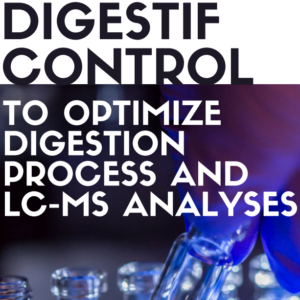
Digestif is a universal protein standard to simultaneously assess the quality of sample workup and the performance of your LC-MS system.
Wednesday April 24 2024, 4:00 pm (CET)
Improving coverage, robustness and sensitivity is crucial for routine phosphoproteomics analysis by single-shot liquid chromatography tandem mass spectrometry (LC-MS/MS) from minimal peptide inputs. The presentation focuses on our systematic optimization of key experimental parameters for automated on-beads phosphoproteomics sample preparation with focus on low input samples, pinpointing critical variables influencing the resulting phosphoproteome. Furthermore, we evaluated how sequential enrichment can boost phosphoproteome coverage and show that pooling fractions into a single LC-MS/MS analysis can increase the depth. The presentation also includes an alternative phosphopeptide enrichment strategy based on stepwise addition of beads thereby boosting phosphoproteome coverage. Our optimized phosphoproteomics pipeline can be translated to the newest generation of mass spectrometers, such as the Orbitrap Astral, increasing the phosphopeptide coverage by 2-fold, allowing for deep phosphoproteomics analysis without the need to scale up the starting cell amounts.
Wednesday April 3 2024, 4:00 pm (CET)
Proteins are the primary targets of almost all small molecule drugs. Nonetheless, even drugs designed with high specificity may interact with multiple proteins that are not initially targeted. Discovering these potential interactions is crucial for the development and repurposing of drugs. Current state-of-the-art proteomics methodologies enable screening of thousands of proteins against a limited number of drug molecules. Here we report the development of a label-free quantitative proteomics approach that enables proteome-wide screening of small organic molecules in a scalable, reproducible, and rapid manner by streamlining the proteome integral solubility alteration (PISA) assay.
Wednesday Nov 8 2023 5 pm (CET)
Soluble HLA (sHLA) peptides are thought to have great potential as biomarkers for different diseases such as cancer. However, efficient enrichment of sHLA peptides from body fluids like plasma has been a bottleneck, requiring 3-5 ml per patient. Here we present IMBAS-MS, an automated magnetic bead based workflow for the efficient enrichment of HLA protein peptide complexes.
The core of IMBAS-MS is the combination of biotinylated antibodies captured by streptavidin magnetic beads allowing for an automated one pot enrichment from only 200 µl plasma.
In combination with Whisper low-flow gradients, data-independent acquisition (DIA) and computational library-based analysis we acquire deep immunopeptidomes from single measurements, elucidating its origins.
Tuesday Oct 31 2023 3 pm (CET)
Our guest speaker for the series will be Stephen MacDonald, CPD assessor and a Principal Clinical Scientist at Cambridge University Hospitals NHS Foundation Trust.
In the first of the three sessions, we will introduce commonly used statistical methods, terms and concepts. Topics will include statistical summaries such as mean, variance, standard deviation and coefficient of variation.
We will draw the distinction between imprecision and bias, and how both contribute to the quality of our results.
We will learn how statistics are used and what other calculations they feed into, including total error and measurement uncertainty. Using practical examples and case studies to illustrate the concepts discussed we can understand how to apply these statistical principles in your daily laboratory operations.
By the end of this session, participants will:
Whether you are a seasoned professional or new to the field, this session will provide valuable insights and practical knowledge that can be immediately applied in your workplace.
About Stephen MacDonald
Stephen MacDonald is a Principal Clinical Scientist in the field of Specialist Hemostasis working at Cambridge University Hospitals NHS Foundation Trust.
Stephen has a keen interest in the statistical assessment of laboratory assay performance and clinical trials. He has focused on determination of uncertainty of measurement in Specialist Hemostasis assays and in developing models to best describe their performance.
This has led Stephen to participating in National Advisory boards for numerous aspects of Laboratory Hemostasis as well as publishing a range of journal articles in The Journal of Laboratory and Precision Medicine and the International Journal of Laboratory Hematology.
We understand our customers’ needs and know how to operate flexibly in a quickly changing but always demanding market.
10 000 +
Products
Instruments and reagents based on innovation for improved laboratory methods.
1 000 +
Satisfied Customers
Networking with 1000´s of individual scientists in Denmark, Finland, Norway, Sweden, Iceland and Baltic countries.
20 +
Years Of Experience
We know how to operate flexibly in a quickly changing but always demanding market.
We are looking for enthusiastic sales professionals who enjoy working in the dynamic life science market.
Menu bar
Contact information
Follow us